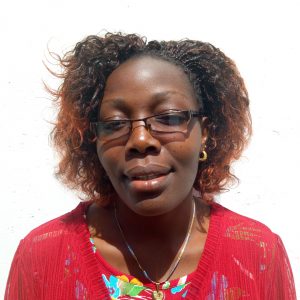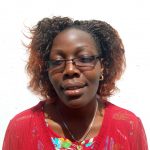Rise and Shine Special School for the Physically Handicapped was established in 2008 with support from the Area Member of Parliament Honorable Washiali. He bought a piece of land of about one hectare in size and put up two classrooms, among other infrastructure. That year, eighteen learners with physical disabilities enrolled as the school's first pupils.
Today, the school is sponsored by the District Education Board and managed by the Board of Management as a government-enrolled school with the Ministry of Education since 2013. The National Council for Persons with Disabilities also came in and built three classrooms for the school, while Family Bank supported the installation of a small plastic rain tank. Since these additions, the school has grown and enrolls students of all ability levels and backgrounds, including orphans and other vulnerable children. There are currently 177 students and 27 teachers and staff.
The area surrounding the school is a mix of businesses, residential homes, and some small pieces of land that the community members cultivate. The school is also next to the Shianda Heath Facility where approximately 300 staff and patients work and seek care, respectively, every day.
The school patches together a mix of water sources to try to meet their high daily demand, but they fall short. The plastic rain tank is very small and runs out of water very quickly, providing only short, seasonal assistance to the school. The students access this rainwater through a tap that comes out of the ground several feet away from the tank.
There is an unprotected dug well in the school compound, but this water is dirty, unsafe for drinking, and only seasonally available as well. The school reports regular outbreaks of typhoid, dysentery, diarrhea, and amoeba as a result of having to drink the contaminated well water.
The school also pays a few school parents and other adults to deliver water, but the source of the delivered water is not known, and the water is sometimes as dirty as their well water. Delivered water is also expensive, and is draining the school of its resources that would be better spent elsewhere.
When the school needs water from the well, not all students are physically able to help fetch it. The same students end up missing class throughout the day while fetching water, tying to provide for their classmates and teachers.
"The unreliable water supply interferes with curriculum and syllabus coverage. Hygiene and sanitation matters cannot be achieved here without water, making it a big challenge to the school," said Head Teacher Willis Otieno Ooko.
As a boarding school, showers and laundry are two of the often sacrificed necessities due to the school's severe water crisis.
"I don't take water after eating and I feel thirsty when there's no water. I also feel bad when I don't bathe," said student Francis.
Nextdoor at the health center, the patients and staff also struggle to meet their water needs with only a seasonal hand-dug well on their property as well. The school and health center have agreed that the new borehole well will serve them both, and the school will allow hospital staff to fetch water on a schedule that will not disrupt their students' needs.
What We Can Do:
New Well
We conducted a hydrogeological survey at this school, and the results indicated the water table beneath it is an ideal candidate for a borehole well. Due to a borehole well's unique ability to tap into a safe, year-round water column, it will be poised to serve all of the water needs for this school's large population, even through the dry months.
The school will help collect the needed construction materials such as sand, rocks, and water for mixing cement. They will also provide housing and meals for the work team, in addition to providing local laborers. We will complement their materials by providing an expert team of artisans and drilling professionals, tools, hardware, and the hand-pump. Once finished, the school’s students and staff will use water from the well and staff for drinking, handwashing, cooking, cleaning, and much more.
The school and we strongly believe that all of these components will work together to improve standards at this school, which will help lead to better student academic performance and unlock the opportunity for these students to live better, healthier lives.
Handwashing Stations
The student health club will oversee the two new handwashing stations we will provide and ensure they are kept clean and in working condition. The club leaders will fill the handwashing stations with water daily and make sure they are always supplied with a cleaning agent such as soap or ash.
VIP Latrines
Two triple-door latrine blocks will be constructed with local materials that the school will help gather. Three doors will serve the girls, and three doors will serve the boys. These new latrines will have cement floors designed to be easy to use and clean. And with a rain tank right on school property, there should be enough water to keep them clean.
Training on Health, Hygiene, COVID-19, and More
We will hold a one-day intensive training session with students, teachers, and parents. This training will cover a wide range of topics, including COVID-19 symptoms, transmission routes, prevention; personal and environmental hygiene; and the operation and maintenance of the rain tank, latrines, and handwashing stations. There will be a special emphasis on handwashing.
Our team of facilitators will use various methods to train, including participatory hygiene and sanitation transformation and asset-based community development. We will initiate a student health club, which will prepare students to lead other pupils into healthy habits at school and home. We will also lead lectures, group discussions and provide illustrative handouts to teach health topics and promote good hygiene practices within the school, including handwashing and water treatment. We will then conduct a series of follow-up training before transitioning to our regularly scheduled support visits throughout the year.



 Rehabilitation Project
Rehabilitation Project










































